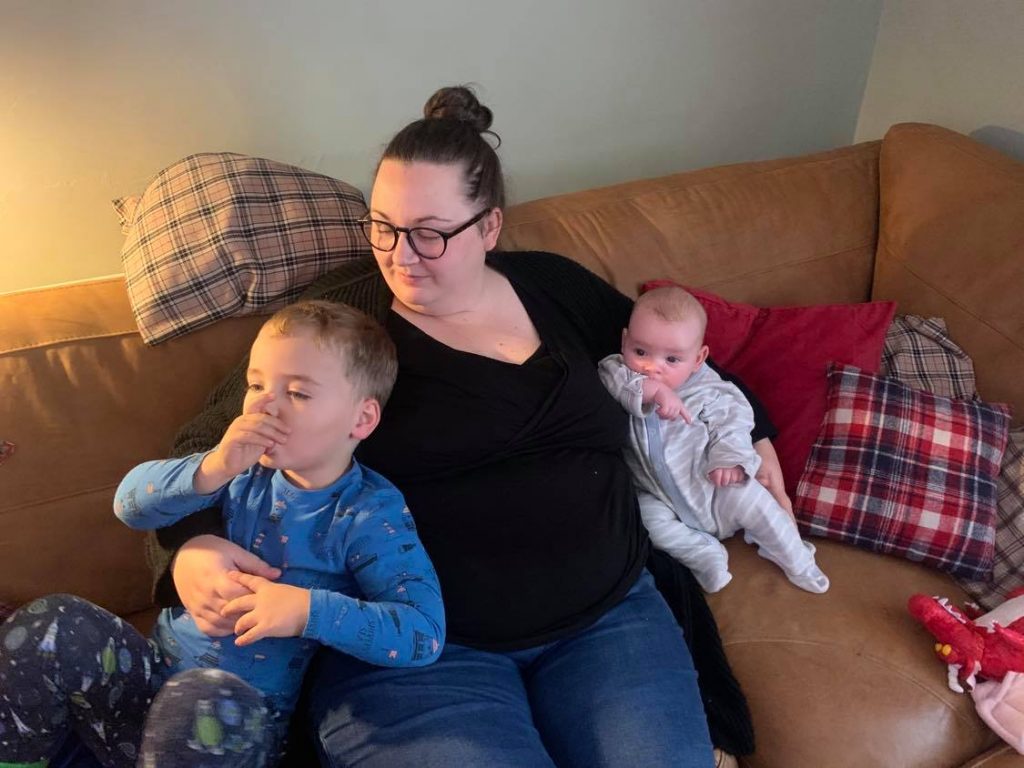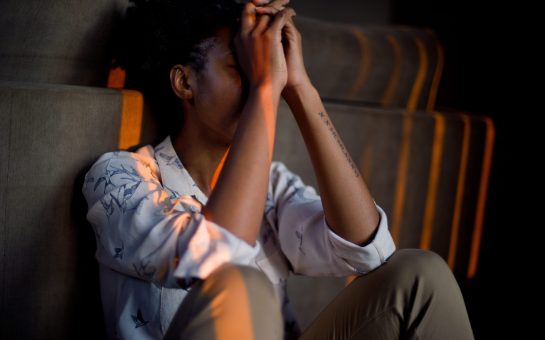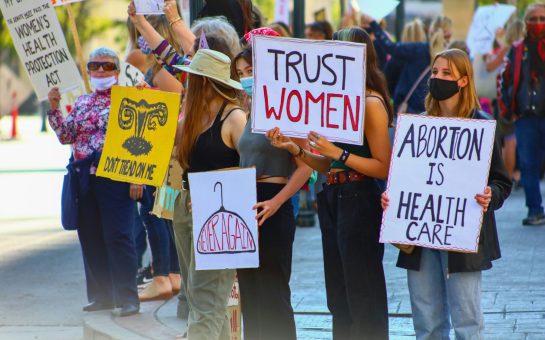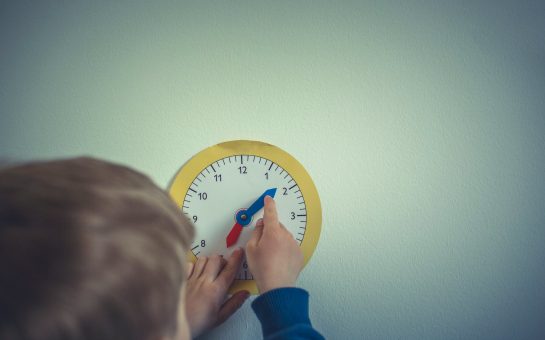In December 2020, the NHS issued advice stating that for pregnant women, having one person with them at scans and appointments should be seen as an integral part of their care.
However, up until that point in the pandemic, many pregnant women had had to attend scans and appointments alone.
National lockdowns also left many new mothers feeling extremely isolated as they had to spend their maternity leave without friends and family.
Clinical director of HealthHero Dr Brigit Lundgren notes how for each family, this has been a different experience.
She said: “We have all managed the best we could in our unique circumstances, it is so important that we don’t judge what we did in an unknown situation, with the knowledge we have afterwards.”
MM spoke to three new mothers, to find out about their experiences of giving birth in the pandemic.
Emily, 33, is originally from Australia but now resides in Sweden.
She gave birth to her first baby at the start of April and although Sweden never went into a full lockdown, her pregnancy was still affected by the pandemic.
Emily told me how she made her husband work from home during the last few weeks of her pregnancy to ensure that he would be well enough to be able to attend the birth.
“I was terrified of him getting even the slightest sniffle because I thought I cannot deal with going to the hospital and going through this child birth all alone”, she said.
Emily described the isolation she felt after her daughter was born.
“It’s not what anyone expects really, you think you have a baby and all your family and friends are gonna come and visit and you’re gonna do like coffee with other new mums and yoga and all these kinds of things and then you just end up being alone.”
Emily’s parents live in Australia and were supposed to visit Sweden around the time of her daughter’s birth. However, due to the pandemic she now thinks they will not be able to meet their granddaughter until she is almost two.
Despite not being able to meet their granddaughter in real life, Emily regularly video chats with her parents and is thankful for this kind of technology which allows her family to virtually follow the development of her daughter.
She is also thankful for Whatsapp and Facebook groups for allowing her to connect online and share tips with new mums.
Although she says her maternity leave would have been far more isolating without these groups, Emily feels this is no replacement for being able to get out and meet people in real life and is curious to see how her daughter, who has only ever interacted with Emily and her husband, will cope with socialising when she is able to start playgroup.
Emily longs to be able to take her daughter out to a children’s science museum or a mother and baby group, but most of all, she wants her family to visit.
“I have a lot of sympathy for other expat mothers, especially those that don’t have a lot of family who are completely isolated and don’t have any support networks at all. I think it’s a tough time for mums who are adjusting to this really big life change and having to do it in a really isolated way.”
Claudia, 33, had her first baby in October last year.
Due to covid restrictions, she had to attend all of her scans and midwife appointments alone.
“I’m quite lucky that for all of my appointments, there was never really any bad news or anything shocking or horrible’, she said.
“Even so it was still isolating really. It was hard actually just not having anyone else there.”
Claudia was not the only one who suffered with feelings of isolation. She told me her husband struggled with being unable to attend scans and felt very left out of the pregnancy.
Last June, in a bid to help him feel more involved, Claudia booked a private ultrasound scan as a Father’s Day present so that her husband could see their baby for the first time.
According to an article published in The Guardian in September 2020, only 23% of hospital trusts were at that time allowing birth partners to stay for the entirety of labour.
Although Claudia’s husband was able to be present for the actual birth of their baby, who was born by C-section, he was made to leave an hour after meeting his first-born, which further added to his feelings of isolation.
Claudia and her husband made the decision to attend NCT antenatal classes over Zoom.
She describes this as a real godsend as the couple had only just moved house and this allowed Claudia to connect virtually with other local mothers, who are now able to meet up and go for walks.
Although Claudia’s parents were able to meet their grand-daughter when she was born between the first and second UK lockdowns, they have been unable to see her since.
‘Babies change so much in their first year, my daughter is a completely different person to who she was, six, seven months ago, so i’m so eager for my family to be able to meet her again.’ she said.
Maternity leave in lockdown is a far cry from what Claudia initially imagined.
“I thought the pandemic would be over by the time i’d given birth and i’d be doing cheesy stuff like sitting in coffee shops and going to mum and baby yoga”, she said.
“I feel like i’ve been a bit robbed”.
Claudia describes her baby as being pretty content. However she is worried about how the pandemic will affect her daughter later in life.
“I’m very aware of the fact that she’s only really ever seen me and my husband.“ she said.
“When she finally meets family members and goes to nursery and stuff it’s going to be a big surprise for her.
“I don’t necessarily feel that new mums have been neglected specifically, I think we’ve all kind of made the best of things as much as we can. It’s been completely world changing for everyone.”
Alex, 33, who lives in Manchester, suffered with bad anxiety throughout her pregnancy and was referred for CBT ( cognitive behavioural therapy) by her midwife.
She feels her anxiety has been made much worse by the pandemic.
Teddy, born in August 2020, is AIex’s second baby and her experiences of pregnancy this time round have been entirely different to her first pregnancy.
“I think not having my husband there with me this time really fed into my anxiety,” Alex said.
“‘I had a really difficult conversation with a consultant about having a C-section and when I asked if I could bring my husband in with me to discuss it he tutted which was quite insensitive.”

Alex gave birth in the same hospital for both of her pregnancies.
However, she states both experiences were very different.
“Because of all of the restrictions this time the hospital felt quite eerie,” she said.
“Before you even got into the scan department you were questioned about where you were going, if you’ve got symptoms, can you use hand sanitizer. It was a really strange experience.”
Despite the initial conversation about her C-section being upsetting, Alex feels that knowing exactly when she was going to give birth worked out better in the circumstances.
“We knew when it was going to happen and we knew that he could come with me and we sort of had a bit more control around how the birth actually happened.
“And the birth experience itself was really good.
“The staff were fantastic and everybody was really friendly.”
During her first pregnancy, Alex was able to attend antenatal classes and make friends with other new mothers.
However, although she tried to attend virtual classes this time around, she feels it wasn’t the same.
“I was doing like just a playgroup online and it just felt really stilted.
“You can’t have the kind of natural conversations that you’d have just being face to face in a room with someone, so I stopped attending that because it just didn’t feel right.”
Now that lockdown is finally being eased, Alex has decided to extend her maternity leave so that she is able to enjoy going to mother and baby groups.
Although maternity leave spent trapped inside has been in many ways isolating for these mothers, they also acknowledge that lockdown has in some ways been beneficial for their babies. Both Emily and Alex noted that because both of their husbands have been working from home they have been able to spend a lot more time with their children and parenting responsibilities have been shared more evenly.
“I think my daughter has a better relationship with her father than most one year olds who only get to see their father for an hour a day and I think that’s made a big difference,” Emily told me.
Now, as lockdown continues to be eased, it will be interesting to see how mothers and their babies have been affected by the pandemic.
Dr Lundgren added: “A huge concern as we move forward is the many new parents whose mental health has suffered during the pandemic and who may continue to struggle as we move into this next phase.
“Remember that seeking help and advice is never a sign that you’re failing, it’s merely recognising where you need more support, be it with childcare or in your mental health, and that is a strength not a weakness.”



